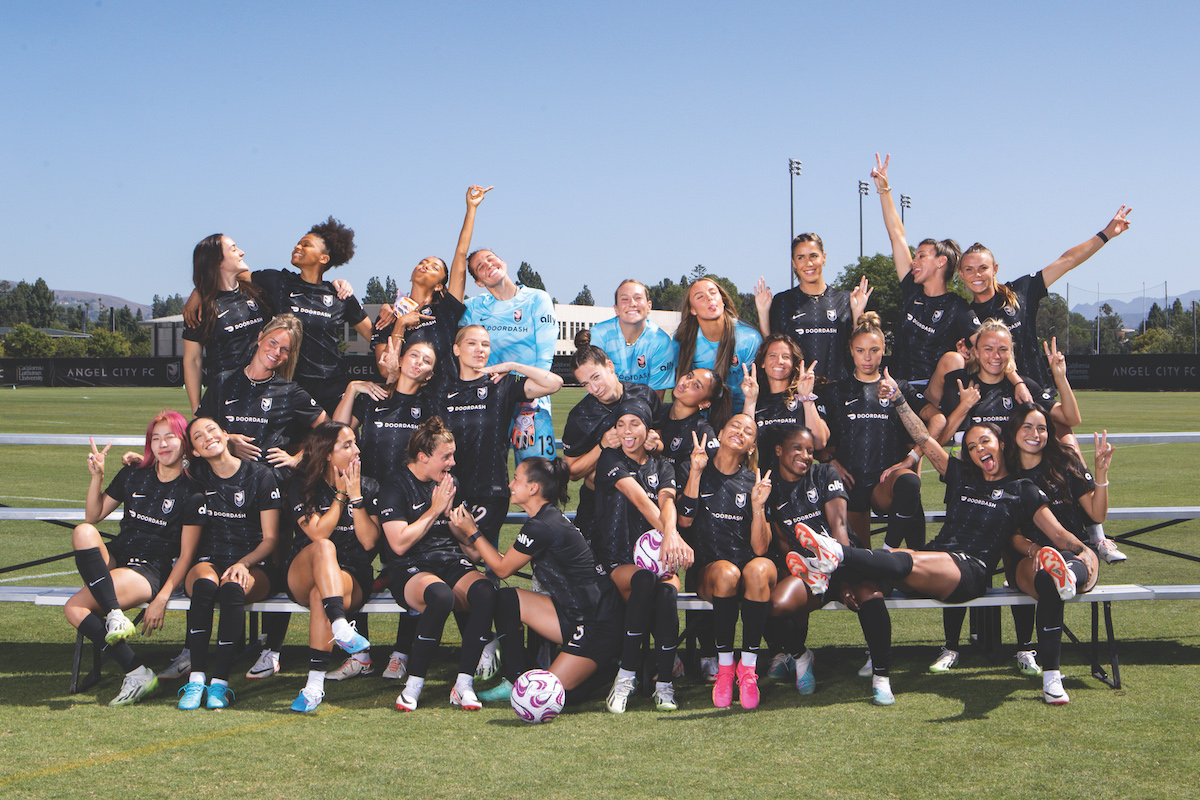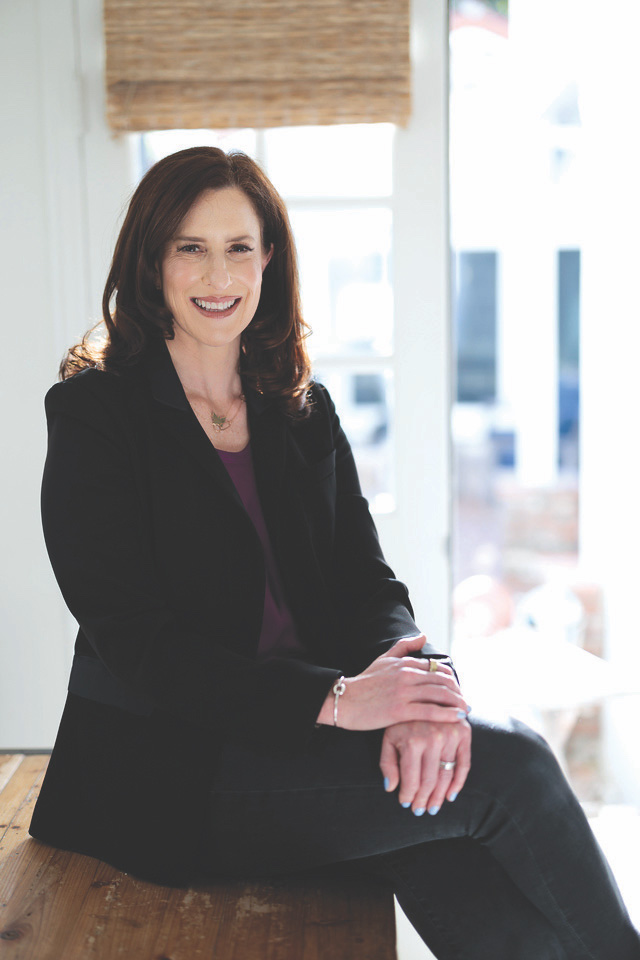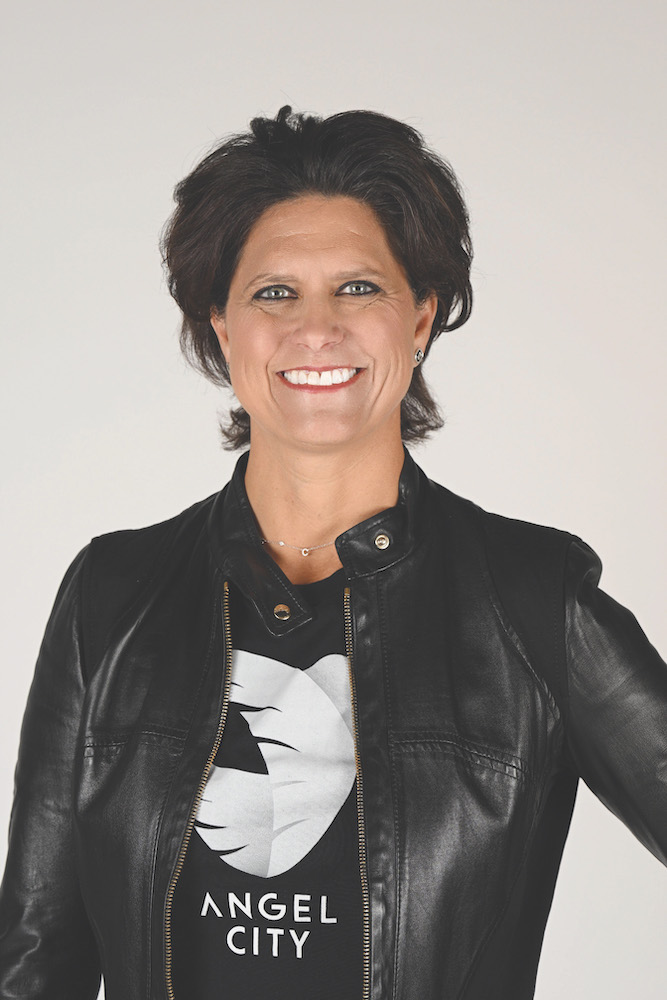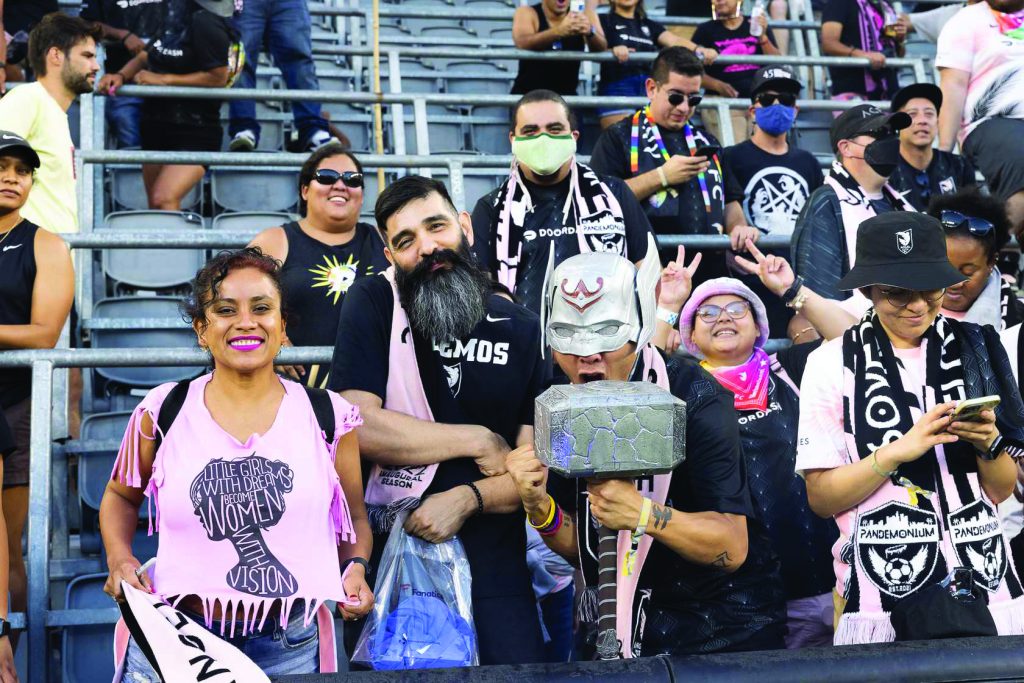Passion, Purpose, and Profitability.

Kara Nortman, a venture capitalist and tech executive, is currently the co-founder and managing partner of Monarch Collective, a sports venture capital fund with a focus on women’s teams, leagues, and business opportunities. Before that, she worked for Microsoft and Morgan Stanley, as well as at IAC, where she oversaw the acquisition of Urbanspoon and Dictionary.com. Nortman is also a founding member of All Raise, a venture capital-led nonprofit dedicated to increasing diversity in the tech and tech funding communities. She also advised the U.S. Women’s National Team Players Association during the soccer team’s pay equity fight.
Julie Uhrman made her mark in the technology, gaming, and entertainment sectors. She founded the video game console company Ouya and was an executive at Lionsgate, Vivendi Entertainment, and Playboy Enterprises. She is also an advisor to numerous tech companies and venture firms, including Drive by DraftKings and Act One Ventures. Uhrman has been named one of the 100 Most Creative People in Business by Fast Company and one of the most powerful women in gaming by Inc. She is an advisory board member of the Los Angeles Sports & Entertainment Commission and the Rose Bowl Institute, as well as a board director of the Los Angeles Sports Council.
In 2020, Nortman and Uhrman – in partnership with Hollywood and sports luminaries like Natalie Portman, Jessica Chastain, Serena Williams, Abby Wambach, and Mia Hamm – launched Angel City Football Club (Angel City FC), the L.A. area’s first women’s professional soccer team since 2010. The goal was to create a sports venture that was not just profitable but that could change the narrative about gender and equity. The team has been wildly successful, leading the National Women’s Soccer League in attendance, ticket revenue, sponsorship sales, and merchandising, all while investing 10% of sponsorship dollars back into the community. Uhrman serves as president of Angel City FC.


Giving List Women: You were an entrepreneur for decades before you co-founded Angel City FC. How has this experience been different?
Julie Uhrman: I’ve never been part of a more effective, efficient team with results beyond anyone’s
expectations.
GLW: What made you want to create a women’s
sports team?
JU: The idea for Angel City began with Natalie Portman and her work during #MeToo to bring access and opportunity in representation and equal pay to female actors and directors. Kara Nortman, our second co-founder, and Natalie worked together at Time’s Up with the U.S. Women’s [National] Soccer Team in their lawsuit against U.S. Soccer, because women players who consistently outperformed their male counterparts at the national level don’t make the same amount of money.
Natalie was also inspired by Abby Wambach’s speech after receiving ESPN’s [ESPYS Icon] Award, along with Kobe Bryant and Peyton Manning. Abby talks about walking off stage and having the epiphany that she was walking into a very different retirement than Peyton and Kobe, who had hundreds of millions of dollars waiting for them. And Abby doesn’t have health insurance or a way to pay her mortgage.
The last piece for Natalie was watching her son, a big soccer player, wear a [Lionel] Messi jersey one day and a Megan Rapinoe jersey the next and him not seeing gender when it comes to excellence in athletics, and wanting to be a part of a world where that’s the norm and not the exception.
Then [the] U.S. women go to France in 2019 and win the World Cup for the second time in a row. It felt like now’s the time to draw attention and awareness to equality and equity for women [in] sport.
Kara and I were playing together in the Women Who Tech basketball league when she returned from the World Cup and pulled me aside and said, “Natalie and I have this crazy idea to bring a women’s professional soccer team to L.A. Would you help us?”
I’m an athlete, and I had no idea the National Women’s Soccer League even existed. Which is the exact reason it’s important for us to exist. Less than 3% of media coverage is about women’s sports. Add to that the backdrop of L.A., with 11 professional sports teams, including two men’s soccer teams, proving there’s a marketplace for soccer. We had to figure out – was there a marketplace for women’s soccer?
We built Angel City differently, given our roots with Time’s Up and #MeToo. Natalie wanted the mission to be at the core of Angel City and, as an entrepreneur, I wanted profit to be at the core, understanding that 90% of all sports teams don’t make money. As female founders, it was important for us to have a different outcome, because if we led with purpose and were profitable, we could change the narrative and drive people to follow in our footsteps. We committed to building an organization where mission and capital can coexist, with the goal of having a positive impact on our community and on the sport, and to drive equity for women.
GLW: Mission and capital rarely coexist. How did you do that?
JU: We lead with passion and purpose to drive profitability. Everything has an impact. When we announced Angel City, we partnered with the LA84 Foundation and the Play Equity Fund. We started selling seat deposits and partnered with Nike to give sports bras to girls in need, because the main reason girls stop playing sports is they can’t afford a sports bra. As we started taking money, we wanted to do something good with it.
To be successful in L.A., with 11 pro sports teams, we needed to create a spectacle. Gameday had to be a FOMO [fear of missing out] experience. We wanted to recreate the 1980s [Los Angeles] Lakers Showtime [era], where you went to a game either to see Magic [Johnson] or to see who Jack [Nicholson] was sitting with courtside.

We had two principles. First, every game is somebody’s first. How do we create an experience that both entertains and makes you want to bring someone else to have an incredible time?
Second, creating an experience with a price point for everyone. To make sure everyone knew how incredible the product was and then add to that the experience.
We wanted to build a community that reflects L.A. – inclusive and diverse – and a safe and fun gameday experience.
GLW: What role do women’s sports play in bringing about a cultural shift toward gender equity?
JU: It starts with access. We’ve launched several programs to address equity, but we recognize it’s going to take time to achieve pay equity. But you have to lay the breadcrumbs today to actually achieve it.
We wanted our partners and sponsors to be part of our community impact work. So, we created the Angel City 10% Sponsorship Model, where 10% of our sponsorship dollars go back into the community. We created a social impact platform of equity essentials and education. We work with our partners to be valued, aligned, and then to support programs in the community. We’ve supported over 35 partners putting nearly $2.3 million to work. With DoorDash, we support [efforts to address] food insecurity, and we’ve given out over a million meals. We do nutrition and education with Sprouts [Farmers Market], and we’ve donated nearly 243 tons of produce. We do coaching programs to help women and non-binary individuals find jobs. We’ve given over 40,000 grants. We do things that address essentials to play sports – transportation, food, sports bras, and access. We do a summer internship program for BIPOC students. And we wanted to include players and fans in the drive for pay equity. So, we created the Angel City 1% player impact fund, where 1% of our net gate receipts goes to our players if they use their name, image, and likeness to promote games.
We are, uniquely, female founded, with a majority female ownership group, including 14 former U.S. Women’s National [Soccer] Team players. We’re building Angel City on their shoulders, and having them involved in our organization from a guidance, advice, and recruiting perspective has been incredible.
We also wanted to do something for former players, so, with the California Community Foundation, we launched the Player 22 Program, a grant program for former players to stay in the sport, to increase their education and their tool set to continue to provide impact.
And because so many people want to support Angel City, we built the Angel City Impact Fund to continue to create access and opportunities for youth and to invest more in the program where we’re doing both.
GLW:What role can sports play in the journey toward gender equity from a cultural perspective?
Kara Nortman: Women’s sports is a cultural institution that brings people joy, that moves their mind, body, and spirit. It moves things forward by getting people to show up, getting their butts in seats, and making them feel part of something that isn’t connected to a screen – part of a community in the real world – and all that makes us feel human and present.
It’s sitting in a modern community where you feel like you have a place as a woman, as a Black person, as a gay or queer person, whatever it might be. It’s a way to get people to understand how we can build community and to let the joy and fun speak for itself – to look around and say, huh, people in the crowd look a lot more like L.A., or the people on the bench coaching the team look a lot more like the team. It’s a way of moving society forward with power structures and normal everyday moments we all crave, which is being together as human beings.
JU: That’s how change happens. That’s how movement happens.